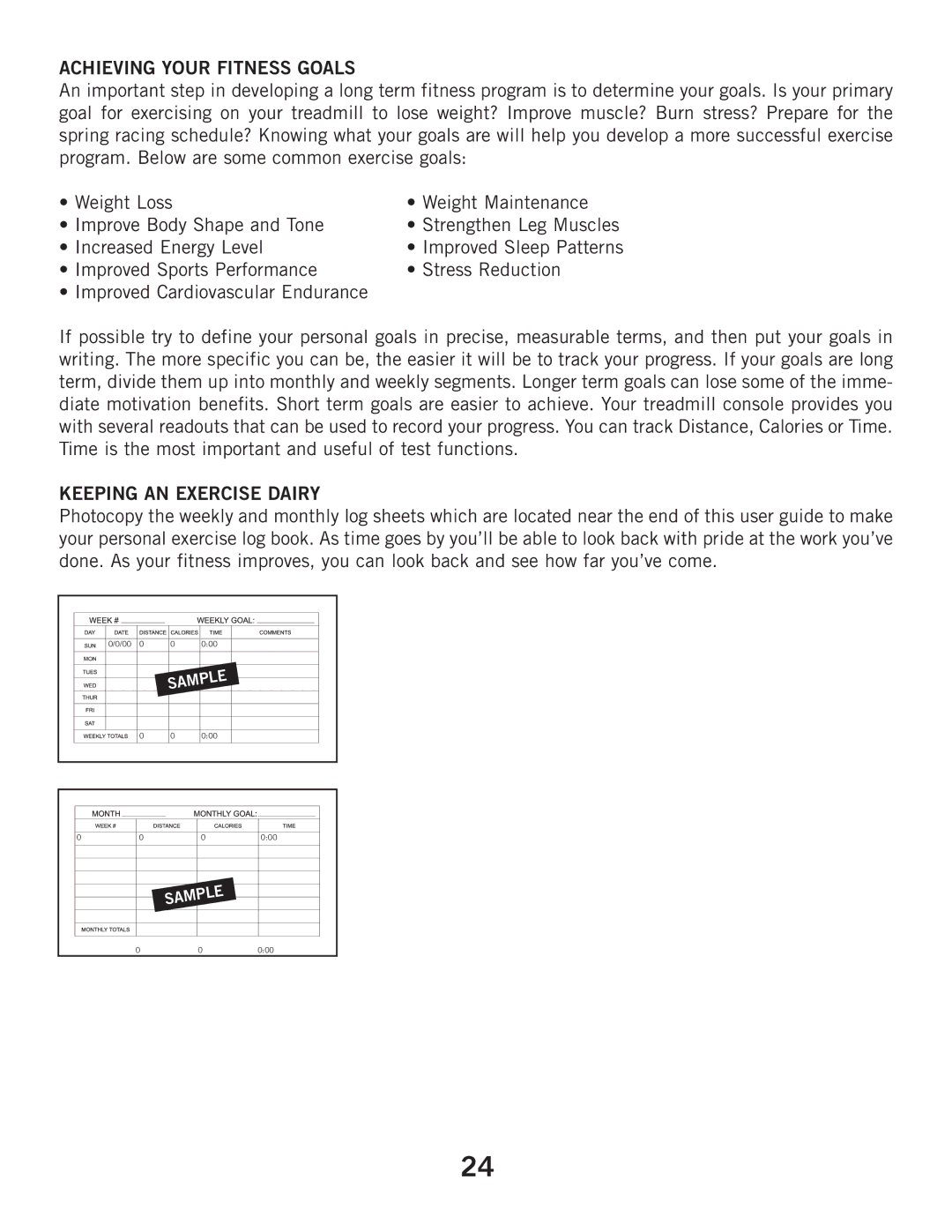
ACHIEVING YOUR FITNESS GOALS
An important step in developing a long term fitness program is to determine your goals. Is your primary goal for exercising on your treadmill to lose weight? Improve muscle? Burn stress? Prepare for the spring racing schedule? Knowing what your goals are will help you develop a more successful exercise program. Below are some common exercise goals:
• Weight Loss | • Weight Maintenance |
• Improve Body Shape and Tone | • Strengthen Leg Muscles |
• Increased Energy Level | • Improved Sleep Patterns |
• Improved Sports Performance | • Stress Reduction |
•Improved Cardiovascular Endurance
If possible try to define your personal goals in precise, measurable terms, and then put your goals in writing. The more specific you can be, the easier it will be to track your progress. If your goals are long term, divide them up into monthly and weekly segments. Longer term goals can lose some of the imme- diate motivation benefits. Short term goals are easier to achieve. Your treadmill console provides you with several readouts that can be used to record your progress. You can track Distance, Calories or Time. Time is the most important and useful of test functions.
KEEPING AN EXERCISE DAIRY
Photocopy the weekly and monthly log sheets which are located near the end of this user guide to make your personal exercise log book. As time goes by you’ll be able to look back with pride at the work you’ve done. As your fitness improves, you can look back and see how far you’ve come.
0/0/00 | 0 | 0 | 0:00 |
|
|
| PLE |
|
| SAM | |
| 0 | 0 | 0:00 |
0 | 0 |
|
| 0 | 0:00 |
|
|
|
| E |
|
|
|
| PL |
| |
|
| M |
|
| |
|
| SA |
|
|
|
| 0 |
|
| 0 | 0:00 |
24
